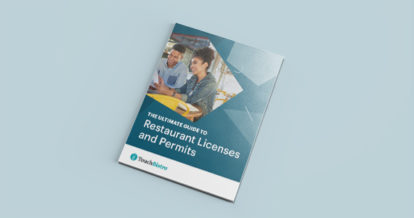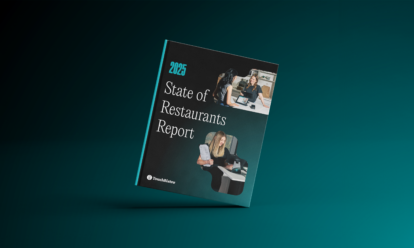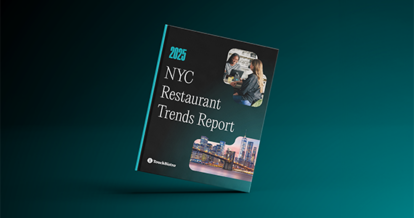If you want to open a restaurant, you need to know about these licenses and permits.
When you dreamed of opening a restaurant, filing for a dumpster placement permit probably wasn’t part of the fantasy. But while it may not be fun, having the proper licenses and permits is essential to opening and operating a successful restaurant.
To help you navigate this world of paperwork and city officials, we’ve created a comprehensive guide to licenses and permits needed to open a restaurant. With information on 17 different types of restaurant licenses, this guide will help you avoid hefty fines and penalties.
Here’s a preview of what you’ll get when you download the Ultimate Guide to Licenses and Permits Needed to Open a Restaurant.
Licenses and Permits Needed to Open a Restaurant
In this section of the guide, we introduce you to the 10 licenses and permits needed to open a restaurant. You’ll also learn how to get a restaurant license and what it’ll cost.
1. Business License
A business license is necessary to open or operate any business in the U.S. This essential document legitimizes your business and gives you the authority to legally operate in a specific state, city, or county. The tricky part is, the process and cost of obtaining a business license varies based on where your restaurant is located.
2. Employer Identification Number (EIN)
Just like a business license, an Employee Identification Number (EIN) is also required to operate a business in the U.S. Your EIN is essentially a tax ID number that’s assigned by the IRS.
3. Food Service License
Any business that serves food is required to obtain a food service license, which means it’s absolutely essential for your restaurant. This license is generally issued by your city or county health department and ensures you are meeting all the regulations for food preparation, storage, and safety.
4. Liquor License
Unfortunately, your food service license only covers non-alcoholic drinks. If you intend to serve alcohol, you definitely need a liquor license.
A liquor license is a permit to sell alcoholic beverages. However, alcohol laws vary from state to state, which means you may need a different type of liquor license depending on where your restaurant is located and what you’re serving.
5. Food Handler’s Permit
Sometimes referred to as an employee health permit, a food handler’s permit is legally necessary for compliance with restaurant labor laws. A food handler’s permit ensures that your employees have completed the necessary food safety certification.
In every state, employees are required to complete a state-approved food handler’s course that covers topics like proper food storage and handling, sanitation, and how to avoid the spread of foodborne illnesses. Employees are also required to purchase a food handler’s permit.
That was just a sneak peek of the first five licenses for restaurants you’ll need. Download our Ultimate Guide to Licenses & Permits Needed to Open a Restaurant to discover the rest.
Additional Licenses for Restaurants You May Need
Once you’ve obtained the necessary licenses to open up your restaurant, you might think you’re done with paperwork for good. Not so fast. Though they may not be as essential as a liquor license, there are a number of additional licenses and permits that you may need to run a successful business.
Our guide explains how to obtain and how much you’ll need to budget for the following licenses for food businesses:
- Music license
- Live entertainment license
- Sidewalk cafe permit
- Valet parking permit
- Dumpster placement permit
- Pool table license
- Food truck permit
Required Restaurant Licenses: Cost Breakdown and Checklist
At the end of the guide, you’ll find a convenient checklist in which we’ve compiled all of your license and permit costs in one place, making it easy for you to check off each one before your restaurant’s opening day.
Download the free Ultimate Guide to Licenses & Permits Needed to Open a Restaurant to get access to all of these resources today.




